The Acer Iconia Tab has been here for over a month now. Bought as a Clovertrail test device it has turned into a surprisingly usable and flexible ultra-mobile PC. The Acer W510 might be using the same Atom core as netbooks did but the package here is far more than that both in terms of computing and usage flexibility. Read on for the full review of the Acer Iconia W510 and a summary of where this ground-breaking style of smart and ultra mobile PC fits into the market.
Unboxing and First Impressions.
You’ll find a full overview and detailed fist impressions post here.
It’s an exciting first few days with the W510 because not only is it exciting to think that it’s a full Windows 8 PC but when you see how slowly the remaining battery level drops you’ll wonder if there’s a mistake. Turn the PC ‘off’ and you might even get a shock when the first email notification comes in. The power button doesn’t turn the W510 off, it halts the desktop and puts the PC into the new Connected Standby state that you’ll currently only find on Clovertrail / Windows 8 devices. Windows 8 apps are able to register for background services which include occasional use of the internet, audio and CPU. It’s a controlled environment but truly, power-on. Press the power button again and it’s instantly available, with WiFi already connected. Skype is one of the apps that is able to run in the background so you’ve effectively got a huge always-on VOIP phone. Using touch on Windows 8 apps and discovering some of the nice features of the modern UI adds to the fun.
Specifications of the Acer Iconia W510 under review
Full specifications and details are available here but here are the main points of interest.
- CPU type: Intel Atom Z2670
- CPU speed: 1500 Mhz (nominal. Min 800, max 1800Mhz)
- Graphics: Intel GMA 3650
- OS: Windows 8
- Display Size: 10.1 inch 1366 X 768. IPS, LED Backlit, 5-point multitouch
- RAM:2048 MB
- Flash: 64 GB eMMC
- WiFi Broadcom 802.11abgn, Bluetooth
- Battery capacity: 24 (Wh on tablet, 24Wh in keyboard dock)
- Weight: 576gm tablet, 694gm keyboard dock, 116gm power supply
- Ports: Tablet: Micro USB host, Micro HDMI, Micro SD, headset. Keyboard: USB port.
- Charger: non-standard connector can be used directly on the tablet and on the keyboard.
- Other: Stereo Speakers. Accelerometer, rotate lock, TPM module, NFC, 8Mp cam rear. 2Mp cam front. Built-in Mic.
- Price: Europe 32GB with dock 499 Euro (post tax.) 64GB with dock 599 Euro (post tax). USA: 64GB with dock: $710 (pre tax)
Build and Ports.


Acer aren’t renowned for the best build and component quality but they’ve done a good job on the tablet for the price. It looks and feels good, has an attractive white outer frame. It feels light and yet sturdy although you can tease a few creaks out of the frame. Buttons seem to be well designed although in portrait mode I found myself accidentally turning the volume down. The answer there is to use it upside-down (windows button on right) in portrait mode.
The docking keyboard suffers from a few issues that I’ll talk more about later but the build quality seems fairly solid. It’s not the most stylish of designs but it should work well for most people.
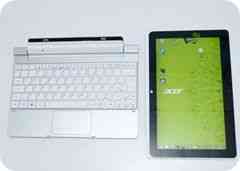
The tablet and dock click together very easily and the hinge is nice and solid but there’s a lot of play. Be aware that this is a mechanical part too so, like the battery inside it, it won’t last forever.
Apart from one USB port, all the ports appear on the tablet frame which means there’s no space for anything full-size. I’m sure consumers are going to be annoyed at having to carry a USB adapter and an SD card adapter just to transfer files from their cameras. Micro HDMI isn’t such an issue but still requires the correct cable. The micro SD card slot was tested with a 16GB card but nothing bigger yet. As a place to store images, photos, music and videos it should work out well. From a reader comment we’ve learnt that the W510 does support 64GB Microsd cards…
I can confirm that MicroSD 64GB SDXC worked fine. Bought the card from Amazon SanDisk Ultra 64 GB MicroSDXC Class 10 UHS-1 Memory Card with Adapter (SDSDQU-064G-AFFP-A). I copied 55GB of video files and each file played fine. The write speed of the card averaged at 10 to 11 MB/s which is very good.
I tested a USB HDD (2.5 inch 120GB) and the built-in USB ports were able to power this.
Screen
The 1366×768 10.1 inch touchscreen is OK. IPS (a must on a tablet) and Clear Type help to make the experience comfortable. Yes, a 1600×900 screen could be better in some scenarios but the extra load on the relatively weak GPU in desktop mode could be noticeable. We tweaked the color balance a bit as we felt the screen was a bit washed-out and it’s turning out to be pretty good. Brightness appears good although like with any backlit LCD screen you’ll need to find some shade when outdoors. The glossy screen doesn’t help there either.
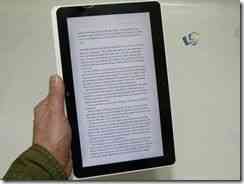
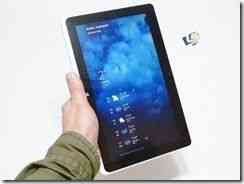
The 16:9 ratio has a little advantage for thumb typing in portrait mode as it’s not a wide tablet about 25% wider than a 7 inch Galaxy Tab. Because the on-screen keyboard is so good you can reach some good thumb typing speeds. Here’s a video showing thumb typing on the Acer W510.
The Acer Iconia W510 was delivered with Windows 8 desktop font sizes boosted to 125% normal size. It does make it easier to read but at 100% you can definitely fit more on-screen. Go for that if your eyes (and fingers) can handle it.
Touschcreen responsiveness is good in Windows 8 modern UI. A drum program was tested and the delay was minimal. You wouldn’t want to play a touch piano keyboard on this but it’s good enough to make it feel responsive. 100ms delay perhaps?
Keyboard and Mouse
The keyboard and mouse are simply not up to scratch. While the keyboard works, there were one or two keys that weren’t accurately responding (the A and left-shift for us) and it’s quite cramped. We’ve seen much better keyboards on 10 inch netbooks at much lower cost before so there’s no excuse here. The mouse is even worse. Not only is it small but it’s single-touch and has a terrible tendency to make the mouse jump on the screen or get locked in a vertical-only movement. Acer might be able to fix some of this via software and at least you’ve got the touchscreen for some mouse operations but for longer-term typing, a mini USB mouse would be a good investment. If the keyboard didn’t contain a 25Wh battery we’d say forget it but it does, and that makes it difficult to ignore.
The battery in the docking station only charges the battery in the tablet when the tablet is off so you don’t get inter-battery charging and discharging which would be very wasteful.
If you can work round the mouse issue and live in hope that Acer will fix it in firmware then the keyboard dock is worth having if you’re only going to be using it occasionally for a few paragraphs of email or the occasional blog while mobile but for those that want a good typing experience, maybe an 11.6 inch Clovertrail tablet with good quality keyboard would be better. [We’re testing a Lenovo Ideatab Lynx this week. ]
Ergonomics
The 10.1 tablet weighs 570gm (1lb 4oz) which makes it about the lightest Windows 8 PC you can buy today. As a tablet it’s really not bad to hold for extended lengths of time and could be the ideal size for couch-reading. In portrait mode text input is relatively easy with thumbing and you don’t have to use the head-spinning split keyboard layout.
In docked mode we’re into netbook territory and the experience is somewhat cramped. There’s an issue with balance too as in some positions the tablet will fall on its back if you go to use the touchscreen. The hinge opens up past 180 degrees though to make a perfect seat-back video player. You’ll get some fantastic video-playback battery life out of this too. See below for more on battery life.
Performance (General)
The heart of the Clovertrail platform is still the Atom architecture that was used in netbooks, UMPCs and MIDs and therefore it has significant limits. What is interesting though is that with 2GB of RAM, an SSD, a better GPU and Windows 8 the system is way more responsive and usable than a netbook. Don’t go editing 30MB images, unzipping 1GB zip files or ‘backing up’ Blu-ray disks but do expect to get a solid Web experience which offers decent speed and high quality. Expect to be able to run Word for simple documents and to be able to watch 1080p videos. Run email, Twitter, Chrome, Live Gallery and a few other Windows 8 apps without issues as long as you’re not racing to be the first to get something done. Windows 7 desktop apps should all work and we’ve had interesting success with Cyberlink PowerDirector 10,a prosumer-grade video editing suite. Both the edit and rendering process were surprisingly good for basic fades, titling and trimming of multiple clips.
Don’t expect to be doing PC gaming outside the Windows 8 store on this. Games from the Windows 8 Store seem to work quite well and that should fill any need for some casual fun. The number of good games is increasing quickly.
Disk Speeds are OK but do have the extra benefit of good access speeds. The SSD is also, of course, silent, low-power and rugged. You will never see a rotating disk on a Clovertrail tablet. We hope that effort is going into improving eMMC read and write speeds though.
In 2007 we were getting 20K on the basic Crystalmark test with Atom-based netbooks. Here’s what we get with Atom in 2012…
Clearly there’s a much better score here than we were seeing on netbooks and it’s not just because of the SSD. Memory and GPU scores are well improved.
Here’s the CrystalDiskMark result too.
The disk test was also done at 100MB test sizes but on this one-month old system where there’s not much storage space left, the write results were poor. Disk management on Clovertrail tablets with small storage space is going to be a challenge for people coming from hundreds of Gigabytes of storage. Be aware of this storage issue in terms of space and write speed.
On the PCMark 7 test we saw a poor 1260 score but that’s at least 75% improved over recent netbooks.
The Cinebench 11.5 32bit CPU test returned 0.53 points which is in the same ballpark as netbooks. A 1.8Ghz Ultrabook will return about 4X-5X this score giving you some idea of the difference. (Ultrabooks generally use a latest Core CPU at 1.7-2.6Ghz)
The Cinebench 11.5 32bit OpenGL test returned an error but went on to show a truly terrible frame rate compared to even built-in graphics on laptops. Given even the good built-in Intel graphics modules can’t provide a smooth PC gaming experience for latest 3D games, we don’t recommend any PC gaming on the Clovertrail platform.
Audio / Video Performance.
Audio output is available through the built-in speakers (not bad but a little off-balance on our deivce), through the headset port (as expected, a huge improvement possible via external speakers), and via the HDMI cable for digital output. Audio over Bluetooth (A2DP protocol) is also available but was not tested. Audio over WiDi to a receiver is not available on this Clovertrail tablet.
During testing there were regular issues with audio stuttering and dropping. The audio seems to be based on an Intel/Realtek collaboration according to device manager. A driver pack upgrade from Acer appears to have stabilized this but not eliminated the problem.
Video performance internally is interesting as there’s hardware acceleration for common formats (MPEG4 variants, WMV) and you’ll see 1080p playback (30Mbps, 50fps direct from a video camera tested) from disk running smoothly in very little CPU usage. It’s efficient too. See the battery life section for details.
There’s a hardware video encoder on board too that can double the speed of rendering on something like PowerDirector. This hardware is available to software that’s Intel Quick Sync Video enabled.
HDMI video output worked to an external 1080p monitor in extended mode.
Wi-Fi Performance
While the module supports abg and n Wi-Fi networks, there’s not much that can be said about the performance. It’s average for a tablet / netbook style device but compared to a well-designed laptops system it can’t compare in throughput or sensitivity. The performance will be acceptable for the home user but in an office or coffee-shop environment you might find yourself bottom-feeding from the hotspot. In a conference or lecture setting, this could be a deal breaker. We experienced an unbroken experience during testing on a private hotspot.
Battery Life
The battery life on the Acer W510 is nothing short of amazing when compared with other PC-based systems and brings it right in line with ARM-based tablets not only for battery life but for being always-on capable to the point where you an run Skype or streaming music in the background for days. It does this always-on trick by using a Windows 8 mode called Connected Standby where the desktop apps are all put on hold (as with sleep) but Windows 8 apps are left to run in a controlled environment. The screen is off but the Wi-Fi and CPU are still alive and you’ll be surprised when you get your first email or Skype notification when you thought the tablet was off. The Sleep and Hibernation modes found on laptops and desktops are gone.
Intel have done some amazing work on this highly integrated Clovertrail / motherboard platform where energy use is concerned. There’s fine-grain control over unused parts of the system in order to send them into idle, there’s dedicated hardware for audio, video and some imaging actions too. Then end result is that where a good netbook could ‘idle’ for say 10 hours, the Acer W510, and other PCs based on this system, can idle for days and days. It’s difficult to measure across all scenarios but while writing this review the power usage was between 2 and 3W with Wi-Fi on and screen on. That’s about 10hrs of active use. With the screen off in Connected Standby mode, Windows 8 apps will do background tasks for many days. Skype was tested and estimated to be able to run for four days in notifications mode on the tablet alone.
A video playback tests (1080p with Wi-Fi off and 50% screen brightness) was measured to return a total of 12 hours of playback time when in the dock enough for the longest flight!
The battery life is so good that it’s arguable that you need the battery in the dock and that a Bluetooth keyboard and a little stand would suffice but of course having the extra battery life brings a great feeling of freedom and possibility. The battery in the dock appears as a separate battery to Windows 8 and is used to charge the tablet battery only when the tablet is shutdown. When docked and on, only the keyboard battery is used.
The battery life on the Acer W510 is very good compared to netbooks, ultrabooks and other laptop-style devices, but note that it’s now only in-line with ARM-based tablets and all Clovertrail tablets should be able to achieve similar efficiency levels. In the tablet category, it’s achieving ‘as expected’ battery life. For a PC, it’s a groundbreaker.
Heat and Noise.
The Acer W510 is a fanless, totally silent Windows 8 PC and does not get warm under normal conditions. In connected standby mode, there’s no heat so the W510 can be safely put into a bag while still on. This brings interesting possibilitied for 3^/4G-enabled versions. (The Acer W511 is HSDPA-enabled in Europe)
Issues and Notes
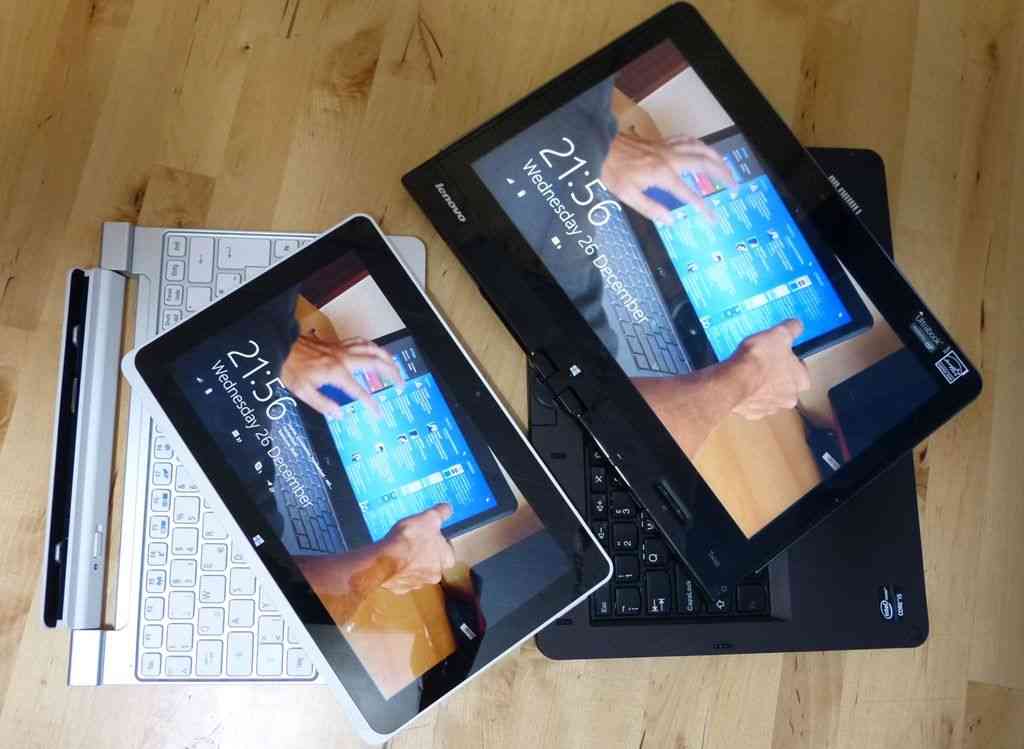
As mentioned above, we had problems with audio freezing and saw frequent lock-ups during the first weeks of use. A recent driver pack seems to have improved that situation. The audio problem could be related to the lock-ups.
The mousepad is another area of concern due to jerky pointer movements and occasional movement in one plane only (vertical.) Thatproblem has not been fixed.
NFC is available but we could not get this to work with our Nokia 808 despite the system recognizing the presence of an NFC device.
As an e-reader the quality and comfort is good for newpaper-style reading. 10-30 minutes, rather than book reading.
An HSDPA version of the Acer Iconia W510 is available the Acer Iconia W511 – for an extra 100 Euros
The 8Mp rear cam needs a lot of light to get a decent picture. Here’s an example (right) at 8Mp, a 4:3 format. Unfortunately the camera software doesn’t record info to EXIF headers.
On-device video, edit and upload is possible. Here’s a quick demo article and video.
Target Customer
With the ‘old’ Intel Atom core inside the Acer W510 and other Clovertrail tablets are never going to be comfortable to use as a laptop replacements but they offer mobility and flexibility that anyone considering something for ‘day-out’ work should take a closer look at. The removable tablet makes an excellent sofa device too so there’s a lot going for the W510. In terms of work vs play in this Clovertrail tablet category the Acer 510 leans towards the latter because of the size and mouse issues. 11.6 inch Clovertrail tablet would have the opposite focus, assuming the keyboard and mouse quality was good. If I was to choose one device for a long flight or train journey though, the W510 would be it based on amazing video playback life, small form factor, incredibly light weight and the flexibility to be used as a PC when needed. The Acer W510 customer will be someone considering an upgrade to a more productive 10 inch tablet, someone who values mobility and flexibility but someone who is also prepared to buy the Acer W510 as an additional device or replacement for an Android or IOS tablet.
Summary
As one of the first Clovertrail tablets reviewed here on UMPCPortal we have to be careful not to put the Acer W510 on a pedestal. There are 10 or more Clovertrail devices to choose from and they are all offering similar features in this completely new segment where productivity can meet entertainment. We’ve tested some other Clovertrail tablets and we’ve got an 11.6 inch Lenovo Ideatab Lynx here too so we’ve got some segment perspective.
Assuming other Clovertrail tablets offer similar battery life and ‘always-on’ features in similar weights and configurations, the Acer W510 would be the lighter and more consumer-focused of the segment. It doesn’t offer laptop level performance but blows away any idea that PCs have poor battery life compared to ARM-based tablets. It completely fails in the mouse department and doesn’t offer a comfortable typing experience but with the touchscreen and some practice,you can get some good levels of productivity out of it, especially considering some the the desktop software available.
In terms of value for money the Acer W510 looks like one of the best in the category right now although it’s hard to understand why if you just look at some of the specs. 64GB was gone within a month of usage on our W510 so we can’t recommend the 32GB version. 599 Euro buys a lot of laptop but if you want a dynamic and mobile PC convertible, a truly mobile smartbook, take a close look at the Acer Iconia W510.
A full gallery and links to previous articles from UMPCPortal and other sites is available through our Acer Iconia W510 Information page.
W510 for sale! Contact Chippy via the ‘About‘ link at the top. The Acer W510 tested here is a German model (QWERTZ, German language) and retails for 599 Euro. I’m selling it for 499 Euro purely to finance the next Clovertrail tablet review here on UMPCPortal.

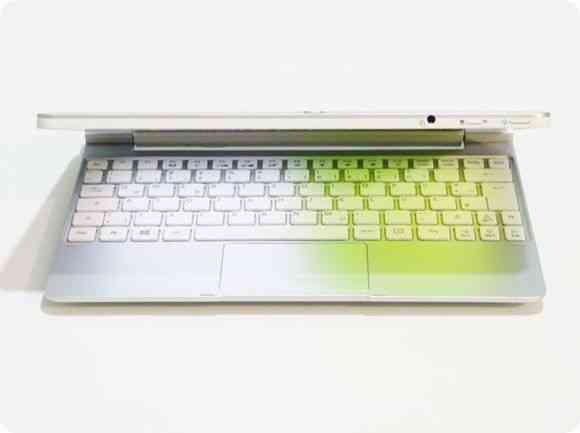
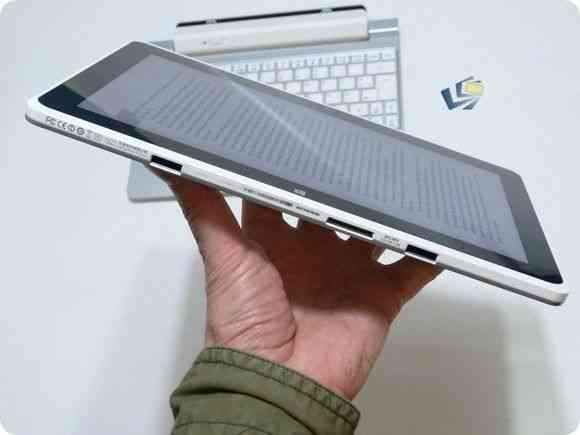
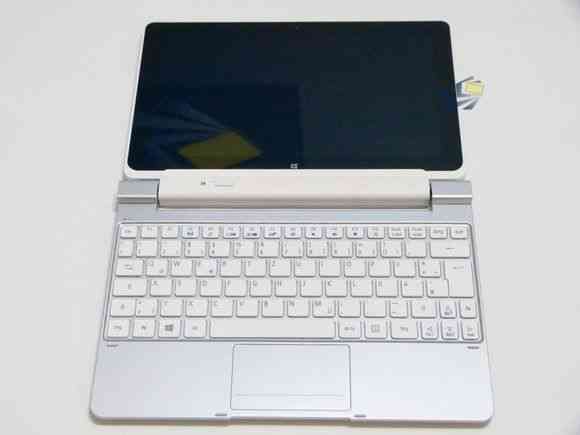
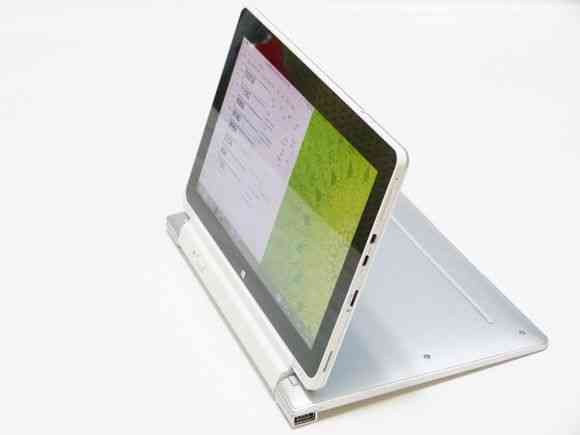
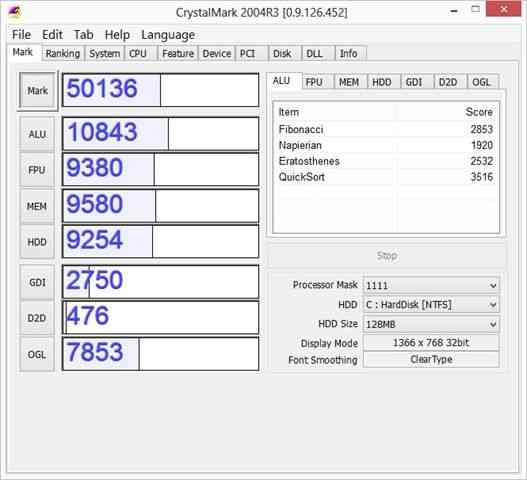
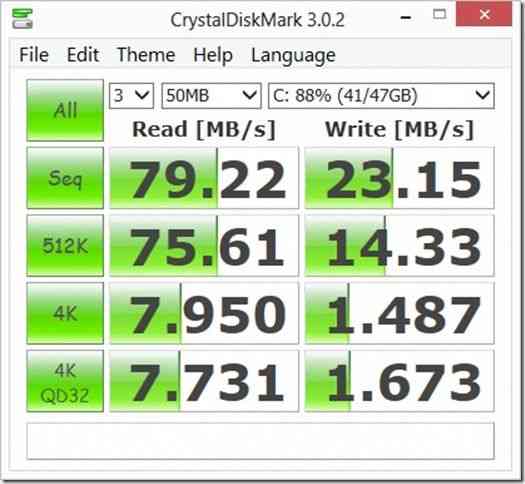
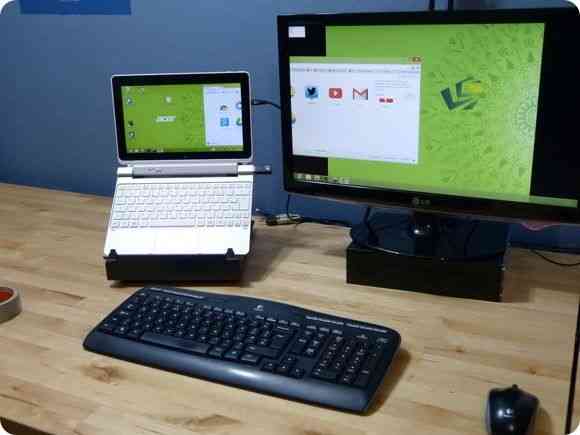












Great review Chippy! I don’t see what else I can add after this! There goes my review… haha!
Just so you know, Acer have acknowledged the trackpad issue, its actually a hardware fault. They are fixing/replacing them as we speak. Check Acer forums.
Mine is actually fine (more recent batch?), its still not a great trackpad but after some tweaking in the settings its totally usable.
Ok. I’ll try and get mine replaced. This is good info, thanks.
Btw, the more reviews, the better it is for the customers!
Chippy
Thanks for the reviews over the years. Very informative and enjoyable. On Your review of this Acer Iconia W510, I bought one and so far really enjoying it tremendously. Thanks for everything.
Great to hear that. Thanks for the feedback.
Chippy – I think it would be helpful to have a few updates in the W510 review, given the discussion in the comments for the Ideatab about the updates to the drivers for the W510, which seem to fix a number of issues.
Cheers! Keep up the good work.
I bought one of these Christmas 2012 at Fry’s in LA, when they first came out. I’m still using it! It’s running the latest build of Windows 10 now, along with Office 365. Battery life is the reason I haven’t replaced it. When I’m travelling or at a conference, I can go for a full workday and then some and still have over 50% on the second battery. I’m still waiting for something this portable and with this kind of endurance — X270 is close but a little bulky. Doesn’t matter how “good” a device is if the battery is dead…this is my favourite computer ever!
Fantastic to hear about that. A 6 year old UMPC! Makes me think about firing up one of my old devices again.